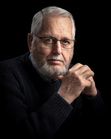Who Are You?
I’ve spent 50 years peering into the past, seeking ancestors and becoming familiar with the details of their lives, and though I’m often frustrated with the complexities of the process, I thoroughly enjoy the hunt.
Every family has a number of stories waiting to be unearthed in an archive, a cemetery or a parish church record somewhere. Here is one of mine. My great-great-grandfather, Thomas, was born sixty miles from Dublin and emigrated to London, England at the beginning of the potato famine in 1845. The 1851 census provides the names of his wife and children, along with their ages, but it also introduces an unanticipated mystery. Who is the seven-year-old female identified as his niece? Since her surname is the same as his, it could only be the daughter of his brother, yet no brother had been discovered at the time.
Several years passed before Thomas’s brother, Patrick, emerged from the millions of London’s archived records, and it was only through perseverance that the names of his wife and four of his children were gradually acquired.
One of the records obtained in the process was Patrick’s marriage certificate of 12 July 1840. For 180 years, that document held a secret which continues to impact his descendants today. Where the bride and groom would normally have signed their names, there are only Xs – both Patrick and his wife were illiterate, incapable of even signing their names. So, how does this affect their descendants today?
Well, each time Patrick and his wife registered the birth of another child, they were asked their surname and replied in what was likely a thick Irish accent from the perspective of an English registrar. As the birth of each child was registered a year or two apart, four separate officials interpreted what they thought they heard, and each one recorded the surname with a different spelling. Today, their descendants legal surnames are spelled variously as Garty, Garby, Garety and Garratty.
Every family has a number of stories waiting to be unearthed in an archive, a cemetery or a parish church record somewhere. Here is one of mine. My great-great-grandfather, Thomas, was born sixty miles from Dublin and emigrated to London, England at the beginning of the potato famine in 1845. The 1851 census provides the names of his wife and children, along with their ages, but it also introduces an unanticipated mystery. Who is the seven-year-old female identified as his niece? Since her surname is the same as his, it could only be the daughter of his brother, yet no brother had been discovered at the time.
Several years passed before Thomas’s brother, Patrick, emerged from the millions of London’s archived records, and it was only through perseverance that the names of his wife and four of his children were gradually acquired.
One of the records obtained in the process was Patrick’s marriage certificate of 12 July 1840. For 180 years, that document held a secret which continues to impact his descendants today. Where the bride and groom would normally have signed their names, there are only Xs – both Patrick and his wife were illiterate, incapable of even signing their names. So, how does this affect their descendants today?
Well, each time Patrick and his wife registered the birth of another child, they were asked their surname and replied in what was likely a thick Irish accent from the perspective of an English registrar. As the birth of each child was registered a year or two apart, four separate officials interpreted what they thought they heard, and each one recorded the surname with a different spelling. Today, their descendants legal surnames are spelled variously as Garty, Garby, Garety and Garratty.
Published on April 26, 2020 19:32
No comments have been added yet.
Books
Books are more than mere pages of text. They are places we have yet to explore; people we have yet to meet; and emotions we have yet to feel.
- David J. Forsyth's profile
- 10 followers



